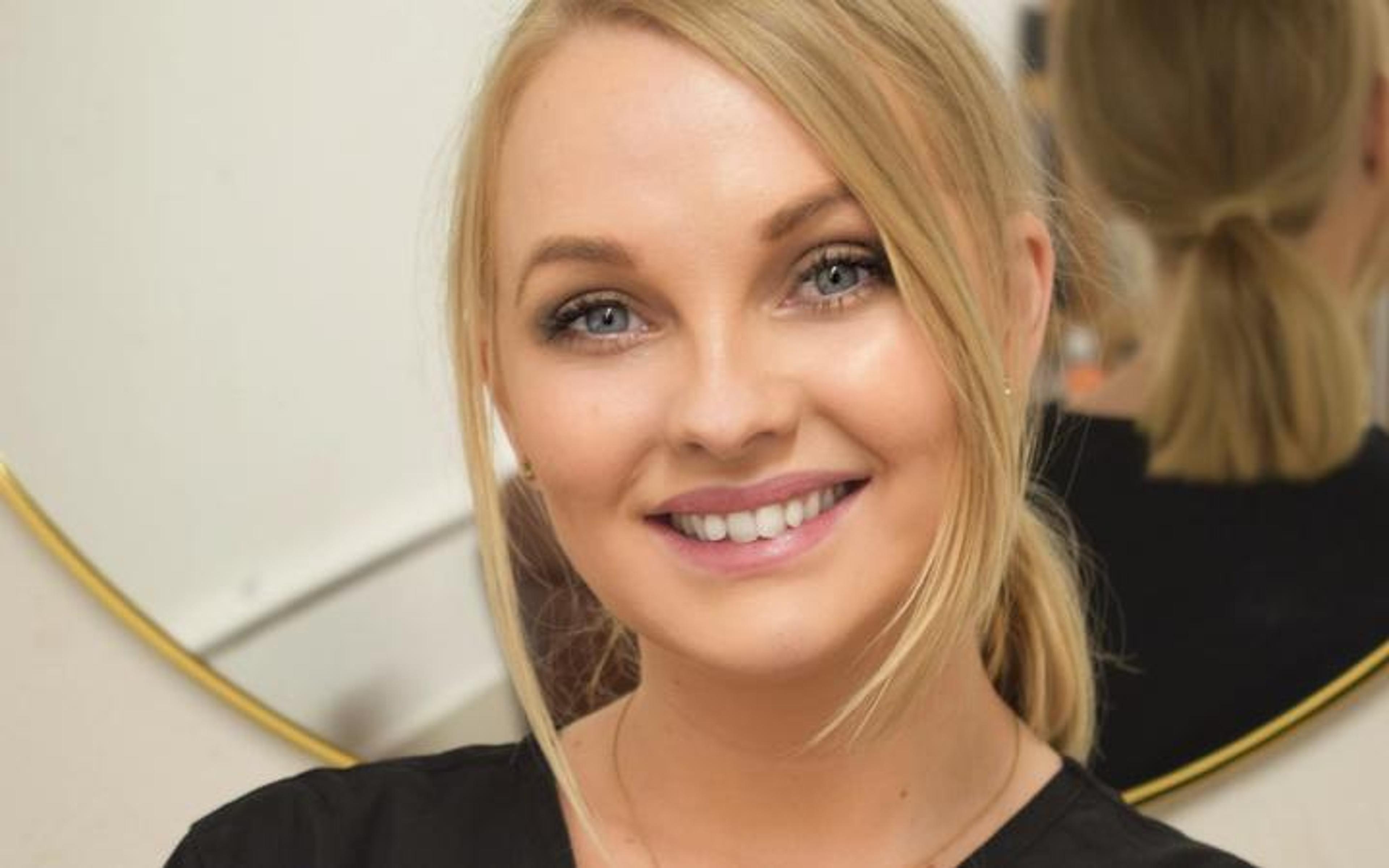A round of applause please for our guest contributor Cheryl Cain owner of The Good Skin Guru Aesthetics Clinic in Manchester. Cheryl discusses why it's so important to see a medically qualified professional for wrinkle relaxing, fillers, chemical peels, Profhilo and all of the other tremendous treatments that aesthetic clinics offer.
It's Not My Job To Give You What You Ask For!
No Regulation Is A Problem
Within the industry, it’s been a long-standing issue that a lack of regulation and quality measures in the UK has led to numerous unnecessary complications, patients being left in the lurch after unsatisfactory or even dangerous results and the tarnishing of the industry as a whole. Unlike other countries, the lack of regulation in the UK allows lay injectors to practice aesthetic medicine and has created a culture where many members of the general public still find this acceptable.
A Long Time Coming
Medical professionals and independent organisations have been calling for the Government to take steps to protect the general public for several years, but with regulation still a distant hope within the aesthetics industry and the popularity of treatments booming, it’s more important than ever to be armed with the appropriate knowledge to make an informed decision about procedures that ultimately can have a life changing effect on your health and wellbeing.
It's so vital that patients understand the importance of choosing a safe practitioner, and exactly what a safe practitioner looks like. I fully believe that a medical professional should be the only choice and here’s why:
Choosing a medical professional ensures that the products they are using are genuine, legal and high-quality.
There are so many Instagram pharmacies and dodgy online black-market dealers trying to sell their products, I get a DM every week from ‘cheap filler’ providers online, there is no way for anyone to guarantee what is in that product and the prices they offer to sell the filler for are scary – no way can some of these be genuine products. We know for a fact there are illegal substances and counterfeit products in circulation within the UK, these products can be extremely hazardous to use in aesthetic treatments and can have life changing effects, permanent facial distortion and scarring are not unheard of and just recently the illegal ‘botulax’ was being used and causing large sores to patients it was used on.
Medical professionals will source high quality products from reputable sources and registered pharmacies, they will be fully trained to ensure the correct product is selected for your desired outcome and will be able to assess your medical history and allergy status to acknowledge when a product could be harmful for you.
Medical professionals are trained to a specific standard.
Now this point is two-fold. Medical professionals first have to meet a stringent criterion to qualify in their individual professions, this is very in-depth and assessed over several years before they can become a qualified professional, they are then monitored by their regulatory body to ensure they continue to uphold the ethical practices of their profession and remain competent in practice. This is all before they’ve even undertaken an aesthetics course. Continuous professional development (CPD) is at the cornerstone of all medical practice, every medical professional will have learned about and continued working towards their CPD throughout their careers and they are therefore extremely likely to continue this practice throughout their aesthetics career, it is bred into us.
The average person may not be aware that anyone can train in aesthetics, literally anyone. You can apply for an aesthetics course today and within a few days be out injecting. Without any in depth knowledge of anatomy, complications, how to manage reactions, the medical considerations to take, how this can impact certain conditions and cause dangerous if not life-threatening problems, who not to treat … the list goes on.
Your treatment will be of the highest safety
Imagine this scenario, you’ve had your treatment done and have gone home, you start to worry about your face, it looks an odd colour and feels more uncomfortable than you expected, you reach out to your practitioner with your concerns. What should happen is that your practitioner wants to review you, they will want to see photos, videos or even bring you back in person. They will have questions to ask you and they may need to start you on treatment which requires a prescription.
Now fortunately, complications are rare, but they are very real and its not uncommon for patients to need prescriptions for antibiotics, steroids or even Hyalase (a medication which dissolves dermal filler used both in an emergency and to dissolve undesirable results), these things require a prescription, this means by law, you NEED to see a prescribing medical professional to get the care you need. Seeing a medical professional means that any follow up and complications management is included in your treatment price, lay injectors do not need to do this leaving you in a precarious position. Now I know there are many lay injectors out there who would try and help in this situation, but I’m also aware of the vast amounts who block their patients, ignore them, dangerously reassure them that nothing is wrong or even tell them to go to A&E (who are unequipped and untrained to deal with many aesthetic complications – this is not A&E’s area of expertise nor should it be).
Seeing a medical professional means they have a duty of care to you which they must uphold as part of their professional registration, they are duty bound to ensure your safety is their highest priority and therefore will see you in the event of a complication, not abiding by the ethical standards expected of them can lead to a medical professional being struck off their professional register, making them unable to work in their profession any longer, an outcome none of us ever want to have to consider. Lay injectors do not have regulation with any statutory body – meaning there are no such consequences for them if they act unprofessionally, unethically or dangerously. There is a reason the national blood service only allows you to donate if you’ve recently had an aesthetic procedure by a medic and not if you’ve had one by a lay person or beauty therapist.
As medical professionals, they should also have appropriate insurance to protect you in the rare instance it is needed (Glowday ensures each and every one of its practitioners have the appropriate insurance, training and medical qualification required).
You are more likely to receive good results
Medical professionals are required to complete informed consent for their procedures, lay injectors are not. But what does this actually mean? To complete informed consent means you fully understand the pros and cons of a procedure and want to go ahead with the treatment, this is a requirement and therefore you will receive a consultation with your medical professional before treatment.
A consultation is paramount to getting you the best results. In no clinic should any injector treat your procedure as a transaction where you pay for cheek filler therefore you receive cheek filler; it is so much more complicated than that. We need to assess your face from all angles, on movement and at rest, understand the anatomy and why you have that shadow that you’d like removed, we need to be able to tell you which treatment will achieve the look you’re going for. And you’d be surprised how often it isn’t what you booked for. I have spent a lot of time as a clinician explaining to clients why they actually need cheek filler not tear trough filler, or why filler is actually much better for their smokers’ lines than wrinkle relaxing. It is not my job to give you what you ask for, it’s my job to find the most appropriate treatment plan to address your concerns and help you understand why.
You are much more likely to achieve the results you want when you trust an expert who understands the dynamics and anatomy of your face than one who takes your money to give you the treatment you thought you needed when booking. You also really need a practitioner who will say no. Sometimes a treatment isn’t safe for you, suitable for you or you may need to take medication before a treatment can go ahead, when we say no to you, we say no to you paying us, this is only ever in your interests, not ours. A medical professional will put your health and safety first, we are comfortable saying no and explaining why, your welfare will always be regarded so much higher than any profits.
So how do you find a medical professional?
There are registers such as the JCCP and BACN that you can use to find medical professionals, or there is Glowday which goes beyond just being a register and shows you genuine verified reviews from real patients and examples of the clinic's work. You can also book directly on Glowday, who also ensures all of its practitioners have their professional qualification certificates, training certificates to allow them to work in aesthetics and their insurance policies are checked and verified.
Glowday go one step further than some and also do not support professionals who in any way support lay injectors, whether that is training them or prescribing for them, ensuring all Glowday professionals are upholding the ethical practices we believe are paramount to making this industry safe and removing the stigma and tarnishing of the industry that lay injectors have contributed to.
Thanks Cheryl for such a balanced, insightful and educational article! Thank you too for your words about Glowday! If you'd like to book in for a consultation with Cheryl, you can do here. If you're looking for someone closer to where you live then search here.

